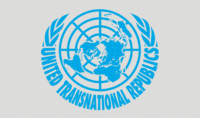 I just discovered and joined the First Transnational Republic. It is a proposed way for individuals to organize, so as to express their freedoms, and to safeguard their needs, on equal terms with transnational corporations and other global players. Here is the manifesto: I just discovered and joined the First Transnational Republic. It is a proposed way for individuals to organize, so as to express their freedoms, and to safeguard their needs, on equal terms with transnational corporations and other global players. Here is the manifesto:Here we are citizens, not subjects.
We, the citizens of the First TRansnational Republic, have assembled in order to globally represent our citizenship rights.
Citizens of our TRansnational Republic are not defined through blood or birthplace but through a similarity in their minds. We therefore ask every person who has an affinity to this and the following principles to join our TRansnational Republic as a free citizen.
The citizen rights include in particular the human rights, transnational principles of justice, the protection of our natural environment as well as the democratic rights of the individual.
In times of growing globalisation the problem of global representation has not yet been sufficiently addressed, the way of the world as well as the faith of the individuals are increasingly determined by transnational organisations (corporations, churches, trade organisations…). There is no comparable political representation system of the individual. The countries of this world cannot – under the influence of these transnational organisations – represent the interests of their citizens; nations cannot act transnationally.
Our aim is the recognition of the First TRansnational Republic by the international community
It seems to be originated in Germany, and, well, there's not a lot there yet. Less than 3000 citizens, and not very many ways of interacting, or an organized way of accomplishing its aims. But what is there looks good, and I like the basic ideas and principles outlined, so I hope there will be a way of participating in fleshing it out further.
[ Organization | 2004-01-10 10:28 | | PermaLink ] More >
|
 Here is an excellent list of principles, tools and strategies for groups of people trying to make decisions together. They're focusing on situations where there's an amorphous group of stakeholders who're working towards consensus on some particular issue. The emphasis is on tools that encourage the results to emerge organically. As an example, picked from the 63 entries, here's an excerpt about the Fishbowl technique:
Here is an excellent list of principles, tools and strategies for groups of people trying to make decisions together. They're focusing on situations where there's an amorphous group of stakeholders who're working towards consensus on some particular issue. The emphasis is on tools that encourage the results to emerge organically. As an example, picked from the 63 entries, here's an excerpt about the Fishbowl technique: I just discovered and joined the First Transnational Republic. It is a proposed way for individuals to organize, so as to express their freedoms, and to safeguard their needs, on equal terms with transnational corporations and other global players. Here is the manifesto:
I just discovered and joined the First Transnational Republic. It is a proposed way for individuals to organize, so as to express their freedoms, and to safeguard their needs, on equal terms with transnational corporations and other global players. Here is the manifesto: